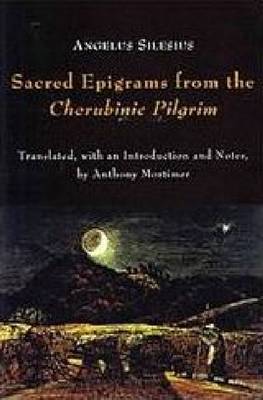AMS Studies in the Seventeenth Century
1 total work
After a long period of neglect, Angelus Silesius (1624-77) is now recognized as the major religious poet of seventeenth-century German literature. A Lutheran converted to Catholicism, he composed close on two thousand scared epigrams that combine the exuberance of the southern baroque with the inwardness of northern mysticism. The bold paradoxes of Silesius speak to a modern religious sensibility while remaining rooted in a long German tradition that includes such figures as Hildegard von Bingen, Meister Eckhart, and Jakob Boehme. Some readers will find striking similarities with Buddhist thought while others may be reminded of the visionary flights of Vaughan and Traherne or the provocative aphorisms of William Blake. Anthony Mortimer, already an acclaimed translator from Italian, offers a generous selection of the epigrams in a version that is remarkably faithful both to the sense and the form of the original. Complete with introduction, notes and facing German text, this volume should interest not only teachers and students of seventeenth-century poetry, but all those who are interested in mystical experience and its literary expression. Anthony Mortimer is Professor of English Literature at the University of Fribourg, Switzerland, and also taught for many years at the University of Geneva. Among his previous books are Petrarch's ""Canzoniere"" in the English Renaissance (Minerva Italica, 1975), Variable Passions: A Reading of Shakespeare's ""Venus and Adonis"" (AMS, 2000), and The Authentic Cadence: Centennial Essays on Gerard Manley Hopkins (Fribourg University Press, 1992).
